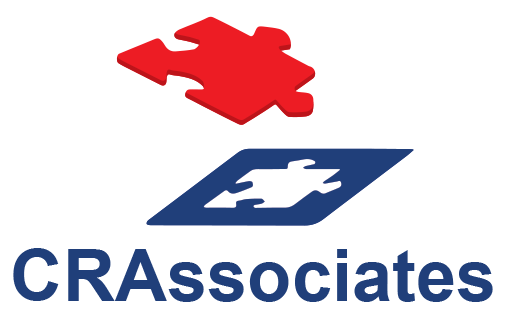CDFI Fund Programs
CDFI Fund Programs permits Community Development Financing Institutions (“CDFIs”) and, in some case Community Development Entities (“CDEs”) to participate in various programs of the CDFI Fund.
 A CDE must (a) be a U.S. corporation, partnership or limited liability company; (b) have a primary mission to serve or provide investment capital for “Low-Income Communities” or “Low-Income Persons;” (c) maintain accountability to residents of low-income communities through their representation on any governing board or advisory board of such entity; and (d) be certified as such by the CDFI Fund (unless it already has been certified as a CDFI). Qualifying as a CDE does not require that the more stringent requirements to qualify as a CDFI must be satisfied.
A CDE must (a) be a U.S. corporation, partnership or limited liability company; (b) have a primary mission to serve or provide investment capital for “Low-Income Communities” or “Low-Income Persons;” (c) maintain accountability to residents of low-income communities through their representation on any governing board or advisory board of such entity; and (d) be certified as such by the CDFI Fund (unless it already has been certified as a CDFI). Qualifying as a CDE does not require that the more stringent requirements to qualify as a CDFI must be satisfied.
These 4 requirements to be a CDE are deemed to be satisfied if the entity is a CDFI or a “specialized small business investment company a (a “SSBIC”).
A CDFI automatically qualifies as a CDE and does not need to apply to the CDFI Fund to be a CDE. A “CDFI” is a financial institution (a) provides credit and financial services to underserved markets and populations; (b) that has been certified as such by the CDFI Fund; and (c) may be a (i) community development bank (which is a commercial bank organized to generate economic development in low- to moderate-income geographical areas and serve residents of such areas); (ii) community development credit union (which is a member-owned financial cooperative, controlled by its members, and organized to assist people by providing its members credit at competitive rates to provide other financial services in connection with community development); (iii) community development loan fund (which provides financing and development services to businesses, organizations, and individuals in low-income communities, including microenterprise, small business, housing, and community service organizations); (iv) community development venture capital fund (which provides equity capital to businesses in underinvested markets, seeks market-rate financial returns, as well as the creation of good jobs, wealth, and entrepreneurial capacity); (v) microenterprise development loan fund (which provides financing to individuals and small businesses in low-income communities); or (vi) community development corporation (which is a nonprofit corporation organized to provide programs, offer services and engage in other activities that promote and support community development, including affordable housing, education, community organizing and real estate development).
A SSBIC is any small business investment company that (a) invests solely in small business concerns that contribute to a well-balanced national economy by facilitating ownership in such concerns by persons whose participation in the free enterprise system is hampered because of social or economic disadvantages; (b) is organized or chartered under state business or nonprofit corporations statutes, or formed as a limited partnership; and (c) licensed as such by the Small Business Administration.
The 5 major CDFI Fund Programs include:
- the NMTC Program (as discussed above);
- the Capital Magnet Fund Program (which provides grants for financing of affordable housing activities, as well as related economic development activities and community service facilities);
- the Bond Guarantee Program (which provides (a) authorization to issue bonds to provide CDFIs with access to substantial capital that is then used to reignite the economies of very distressed communities, and (b) a 100% guarantee on such bonds through their maturity dates);
- the Bank Enterprise Award Program (which provides monetary awards to FDIC-insured depository institutions (such as banks and thrifts) that successfully demonstrate an increase in their investments in CDFIs or in their own lending, investing, or service activities in the most “Distressed Communities”); and
- the Healthy Food Initiative Program (which provides funds which can be used to finance business and real estate projects that provide healthy foods).
1. CDFI Fund Capital Magnet Fund Program
The Capital Magnet Fund Program provides grants for financing of affordable housing activities, as well as related economic development activities and community service facilities.
The “Program Applicant” must a CDFI or a “qualified non-profit housing organization.”
A successful Program Applicant may use its Capital Magnet Fund award to (a) finance affordable housing activities; (b) finance related economic development activities; (c) finance community service facilities;
and (d) create financing tools (such as loan loss reserves, revolving loan funds, risk-sharing loans, and loan guarantees).
To find out more information about the Capital Magnet Fund Program or to apply as the Program Applicant to the CDFI Fund, please click the following link:
2. CDFI Fund Bond Guarantee Program
The Bond Guarantee Program provides (a) authorization to issue bonds to provide CDFIs with access to substantial capital that is then used to reignite the economies of very distressed communities, and (b) a 100% guarantee on such bonds through their maturity dates.
The “Program Applicant” must be a “Qualified Issuer,” which must (a) be a CDFI; (b) be able to issue bonds and make loans; and (c) demonstrate the capacity to perform specialized administrative functions, including loan servicing and financial reporting.
A successful Program Applicant may use the proceeds of its bonds under the Bond Guarantee Program to (a) finance large-scale project (including the development of commercial real estate, housing units, charter schools, daycare or healthcare centers, and municipal infrastructure), and (b) extend credit to other community development Borrowers (the “Borrowers”) or refinance existing loans at low interest rates, freeing up capital for additional investments.
To find out more information about the Bond Guaranteed Program or to apply (a) as the Program Applicant to the CDFI Fund, or (b) as a Program Borrower to a successful Program Applicant, please click the following link:
3. CDFI Fund Bank Enterprise Award Program
The Bank Enterprise Award Program provides monetary awards to FDIC-insured depository institutions (such as banks and thrifts) that successfully demonstrate an increase in their investments in CDFIs or in their own lending, investing, or service activities in the most “Distressed Communities.”
For this purpose, “Distressed Communities” are those where at least 30% of residents have incomes that are less than the national poverty level and where
the unemployment rate is at least 1.5 times the national unemployment rate.
The “Program Applicant” must be FDIC-insured depository institutions (such as banks and thrifts) that successfully demonstrate an increase in their investments in CDFIs or in their own lending, investing, or service activities in the most distressed communities.
A successful Program Applicant may use its Bank Enterprise Award to provide (a) equity investments, grants, equity-like loans, loans, deposits, and/or technical assistance to CDFIs; (b) direct lending or investment in the form of affordable home mortgages, affordable housing development loans or investments, home improvement loans, education loans, small business loans or investments, small dollar consumer loans, commercial real estate development loans, or investments to residents or businesses located in distressed communities; and (c) access to financial products and services, such as checking accounts, savings accounts, check cashing, financial counseling, new banking branches, or individual development accounts to residents of distressed communities.
To find out more information about the Bank Enterprise Award Program or to apply as the Program Applicant to the CDFI Fund, please click the following link:
4. CDFI Fund Healthy Food Initiative Program
The Healthy Food Initiative Program provides funds which can be used to finance business and real estate projects that provide healthy foods.
The “Program Applicant” must be a CDFI or a CDE.
A successful Program Applicant uses its Healthy Food Initiative award to finance businesses and real estate projects which provide healthy food options, including grocery stores, farmers markets, bodegas, food co-ops, urban farms, production, distribution or retail aspects of the business cycle.
To find out more information about the Healthy Food Initiative Program or to apply as the Program Applicant to the CDFI Fund, please click the following link:




